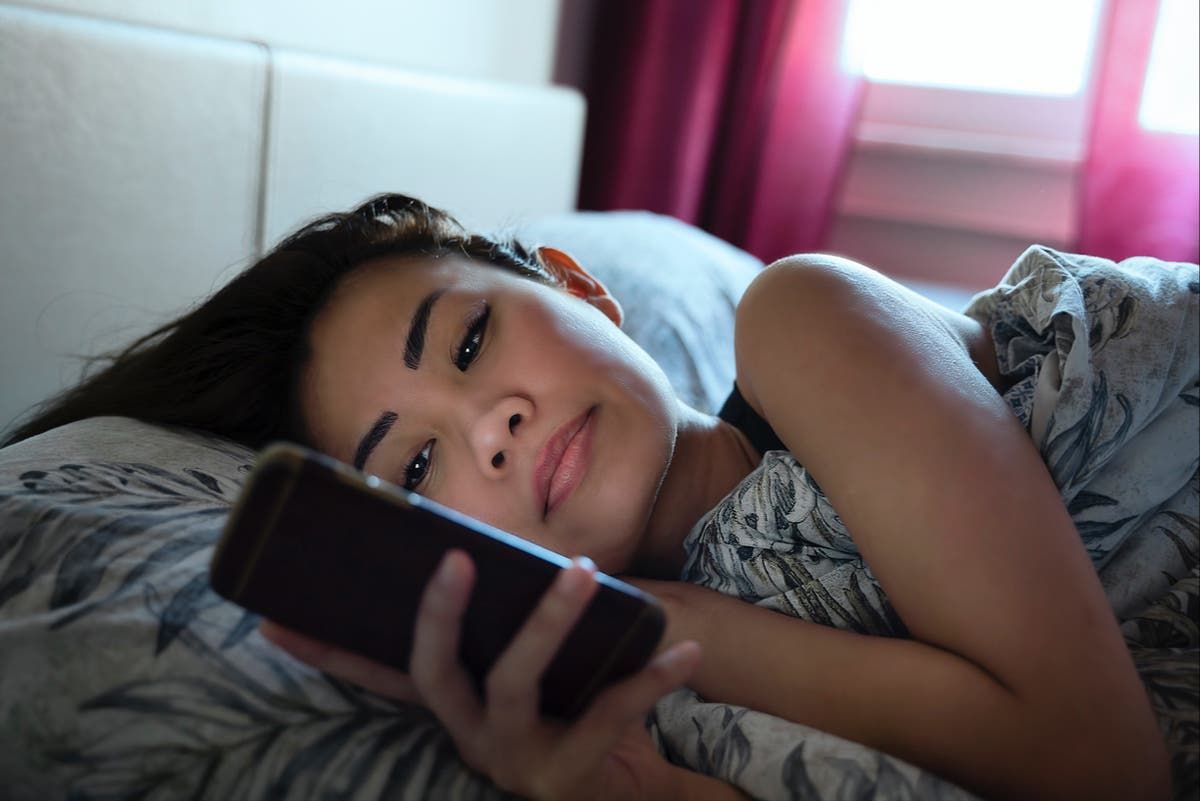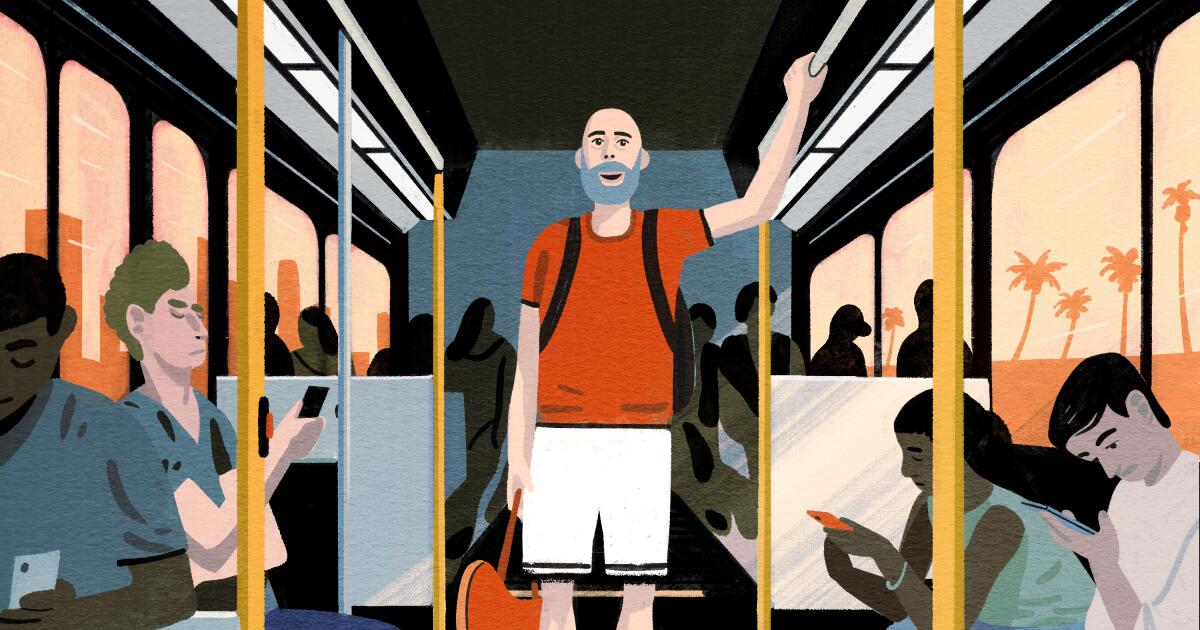Truly support
independent journalism
Our mission is to provide unbiased, fact-based reporting that holds the powerful to account and exposes the truth.
Whether it's $5 or $50, every contribution counts.
Support us in offering journalism without agenda.
METERMy morning routine goes something like this: Every weekday, I wake up to the sound of one of Apple’s default alarms and reach for my phone to shut off the noise. Then, without fail, I start scrolling through Instagram, squinting at the bright screen like a mole that’s just emerged from hibernation. Five, ten, thirty minutes can easily pass as I flip through other people’s vacation photos, learn the best way to put my hair up in a slicked-back bun, or listen to a California surgeon explain a celebrity’s dramatic facial transformation. Sometimes I watch videos where other people show off their aesthetically pleasing, productivity-enhancing morning routines. They tend to be a merry-go-round of matcha lattes, matching tracksuits, and reformer pilates classes, rather than what I do: hitting snooze nonstop and holding my phone way too close to my face in a dark room.
And the most irritating thing about all this? I don’t even really enjoy surfing the web; instead, I start my morning frustrated by my lack of willpower. Deep down, I know I’m being bombarded with fairly useless ephemera. I know that watching an influencer buy an iced latte and a pastry to “romanticize her day” won’t improve my own quality of life. I don’t even care about mastering slicked-back buns, because I look like a founding father when I put my hair up. Yet this habit proves impossible to break. And I’m surely not the only one whose first moments of the day are disrupted by social media: According to one study, 80 percent of smartphone users check their device within 15 minutes of waking up. So what is the impact of this compulsion, and how can we break free from it?
Firstly, it’s worth looking at why so many of us find ourselves absorbed by what’s happening on our tiny screens before we’ve even considered eating breakfast or brushing our teeth. Surely, part of it is down to our relationship with our phones. Modern working culture, at least in the UK, encourages us to be ever-vigilant, ready to receive emails and chat notifications outside of our working hours. Is it any wonder that our first action is to see if all hell is breaking loose in our inbox and then, phone in hand, glance at social media on a whim?
Some jobs also require you to be aware of what’s going on in the world before you sit down at your desk, whether it’s keeping up with sales figures or watching the stock market. My personal habit of surfing the web in the mornings started when I would begin my workday with a 7:30 a.m. meeting – before, it was a given that we would have already checked the headlines beforehand, even if it meant doing so on our own time.
Then there are the apps themselves. Social media platforms, as we all know at least vaguely, have been developed to activate the brain’s reward system. When we get a new notification or watch a new TikTok video, we get a hit of dopamine, the neurotransmitter that helps us feel pleasure. It’s not just the act of scrolling itself that gives us a little dopamine reward, but the very anticipation of doing so, which is why we end up wanting to keep using it for longer and longer.
When we stop, our dopamine levels drop again. Hence the “just one more Instagram story…” trap that is so easy to fall into. “We are so used to something appearing in our email inboxes or on our social media accounts that gives us that little feeling of being connected,” says psychologist and psychotherapist Dr Charlotte Armitage, founder of No Phones at Home Day. “However false or temporary it may be, [that may be]“We are still looking for that.”
But displacement is a case of diminishing returns. The more we do it, the more we get need To achieve this same impulse, the brain ends up reducing its transmission to below normal levels. This creates what is known as a dopamine deficiency. The symptoms may be very familiar: lack of concentration, tiredness, irritability… Tic, tic, tic.

Getting a jump on the day with commuting is also a bad idea, as it affects how our brain transitions from sleep to full wakefulness. Slow, low-frequency delta waves tend to occur during deep sleep, helping the brain and body recover from the day before. Then, as we transition into lighter sleep, they're replaced by theta waves, associated with relaxation and creativity. When you wake up, the brain produces alpha waves, for that in-between state where you're aware but not really focused on anything.
The brain, says Dr. Armitage, “needs to really wake up, adjust, settle, and then… [you can] “Get up and get ready.” But if, like me, you tend to grab your phone as soon as you open your eyes, you’re essentially forcing it to prematurely jump to the next stage: You’re jumping from feeling half-awake to a state of alertness, characterized by high-frequency beta waves. These typically appear later in the day when we’re deeply focused on a task—they’re helpful when you’re working or trying to solve a problem, but if they come on too early, they can be overwhelming and leave us feeling stressed.
You're seeing all these things that are happening in the world and you haven't even gotten out of bed yet.
Dr. Charlotte Armitage
So diving into social media first thing in the morning is like drinking a can of Red Bull with breakfast, rather than a glass of water. And that’s before we’ve even started to analyse the actual content of the posts and videos we’re exposed to. It’s no surprise that reading depressing news on Twitter/X or seeing how wonderful everyone’s lives are on Instagram can throw our emotions off balance first thing in the morning and set the mood for the rest of the day. Starting the day this way means “we’re already overwhelmed” before we’ve even fully woken up, says Dr Armitage. “You’re seeing all this stuff that’s going on in the world and you haven’t even gotten out of bed yet… That’s a really weird thing.”
What can I do to try to break free from the feeling of morning doom? A lot of the advice on the internet is well-intentioned, but a little impractical. I know my own limitations, and frankly, it's highly unlikely that I'll ever be the kind of person who starts the day by reciting positive affirmations in front of the mirror or doing a quick meditation. Dr. Armitage has more direct advice. “The way to stop scrolling so much is to become aware of how much we scroll,” she says. “To do that, we need to make it a little harder to get to normal.” [the apps]That's when our brain kicks in and says, “Do you really want to do that?”
As a first step, Dr. Armitage recommends “decluttering” the apps on your phone. “Put all the social media apps on a different page, off the home screen, and put them in a folder there, because they’re much harder to get to,” she says. This can make us realize what we’re actually doing. “Even changing the order of your apps every month will remind you to be more mindful,” she adds. Turning on “do not disturb” or putting your phone on airplane mode can also be helpful, to ensure you’re not immediately greeted with a backlog of notifications when you wake up.
And if you're really daring? Armitage suggests “not having your phone in the bedroom at any time during the night,” and instead leaving it somewhere else. “You're getting ready, you're starting the day, whether it's alone, with a cat, with your kids, whoever. But you wake up and so “The phone comes in, not the phone being the first port of call in the morning.” Sounds like it might be time to invest in a proper alarm clock.












